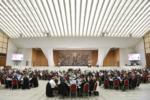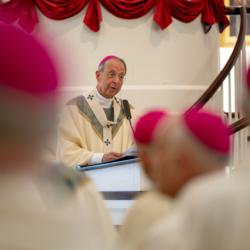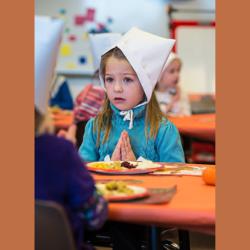Scripture Reflection for June 9, 2024, Tenth Sunday in Ordinary Time
Gn 3:9-15
Ps 130:1-2, 3-4, 5-6, 7-8
2 Cor 4:13-5:1
Mk 3:20-35
Have you ever felt rejected by the people you love?
You're in good company. The Scriptures this Sunday show what Jesus went through in his hometown -- and they offer us a valuable perspective.
In Mark's Gospel, Jesus hears some criticism and name-calling that is downright blasphemous, with relatives claiming that the Son of God is "out of his mind."
But one phrase really struck me. You could almost miss it, but look closely. It comes at the very beginning of the excerpt from Mark's gospel: "Jesus came home."
Those simple words are freighted with meaning -- and by the end of this passage Christ has redefined what it means to be "home" and challenged his listeners to reconsider what it means to be "family."
Before that, though, Jesus encounters accusations that are more than a little bit shocking. He is accused of being possessed, of using "the prince of demons to drive out demons." His neighbors and relatives call him, in effect, a madman.
Yet Jesus doesn't respond with shock or outrage. He's not even offended. He chooses another way, explaining who he is with clarity, reason, authority, and wisdom. You might even say he speaks out of love.
Then, when his family comes looking for him, he doesn't turn his attention to them. He looks instead to those who are surrounding him, "those seated in the circle" and listening to his words. What he says may have left them startled -- and even scandalized.
"Here are my mother and my brothers," he says, "For whoever does the will of God is my brother and sister and mother."
Unexpectedly, with just a few words, Jesus offers a new sense of belonging, of describing what makes up the Christian community. Here is a new definition of "family" and, by extension, a new way of thinking about "home."
"Family," in the teaching of Christ, is more than just a matter of genetics or geography. It is not just a shared history; it encompasses so much more than the people you call your relatives. The Christian family goes beyond blood.
Being part of Jesus' family means living, like Jesus, obedient to God's will. It means trusting in the father who loves us and nurtures us, the father who desires nothing more than for us to spend eternity with him and who sent his son to help make that possible. It means embracing that son as our brother -- living with fidelity to God's teaching and with hope in a life yet to come, in a place we can only imagine.
And that destination is, really, our home.
This episode in some ways foreshadows the Christian persecution that will come -- and the kind of rejection of Christ's message that will eventually lead to Calvary. Long before that, though, Jesus shows that following his path isn't easy, even in the place you call "home." This message: don't seek acceptance in this world, but plan instead for the next.
It's a timely message. We can't forget that in some parts of the globe today, to live as a Christian is to live with a target on your back -- being marginalized, mocked, persecuted, imprisoned, even killed. The age of the martyrs continues.
But this Sunday's Scriptures call on us to embrace being part of the Christian family anyway, to remember that we are meant for other things. We belong elsewhere, "doing the will of God."
In this Sunday's epistle, St. Paul explains it perfectly. He writes in his letter to the Corinthians that we should "look not to what is seen but to what is unseen." And the tentmaker from Tarsus adds: "If our earthly dwelling, a tent, should be destroyed, we have a building from God, a dwelling not made with hands, eternal in heaven."
We may give someplace else our address. But there is another place that is truly our true home.
- Deacon Greg Kandra is an award-winning author and journalist, and creator of the blog, "The Deacon's Bench."



















